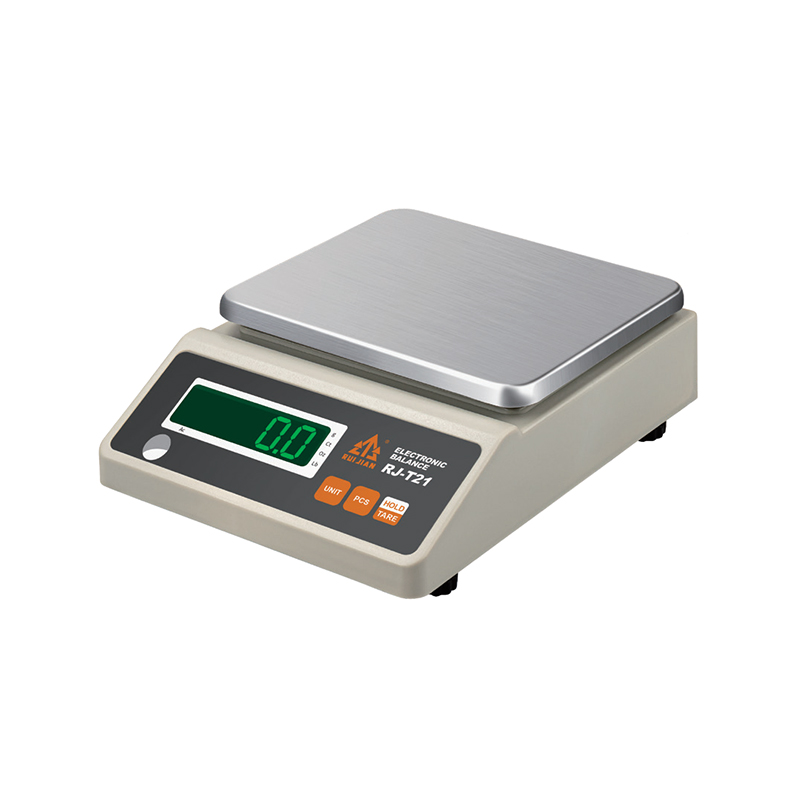Product Consultation
Your email address will not be published. Required fields are marked *
The role of environmental factors on the accuracy of electronic balances cannot be overlooked. Whether in a laboratory setting or within industrial applications, the performance of a precision electronic balance or accurate electronic weighing scales is heavily influenced by the surrounding conditions.

The Role of Temperature in Balance Accuracy:
Temperature is one of significant environmental factors affecting the performance of a precision electronic balance. Fluctuations in ambient temperature can cause the materials of the balance to expand or contract, cause inaccuracies in weight measurements. For instance, a sudden change in temperature can cause the internal components of an accurate electronic weighing scale to shift, resulting in erroneous readings.
To counteract the effects of temperature, many precision electronic balances are designed with temperature compensation features. These systems adjust the balance's calibration based on the current environmental conditions, ensuring that measurements remain accurate despite temperature changes. However, it is still essential for users to be aware of the potential impact of temperature on their balance's performance and take appropriate measures to maintain a stable environment.
Humidity's Influence on Electronic Weighing Scales:
Humidity is another environmental factor that can significantly affect the accuracy of electronic weighing scales. High levels of humidity can cause the formation of condensation on the balance's surface, which can interfere with the balance's sensors and result in inaccurate readings. Additionally, prolonged exposure to high humidity can cause corrosion or damage to the balance's internal components, further compromising its accuracy.
To minimize the impact of humidity on a precision electronic balance, it is crucial to store and operate the balance in a controlled environment with low humidity levels. Regular maintenance, including cleaning and calibration, can also help to prevent the buildup of moisture and ensure the balance remains accurate.
The Effect of Air Currents on Balance Accuracy:
Air currents, whether from drafts, fans, or open doors, can also have a significant impact on the accuracy of electronic weighing scales. These air currents can cause the balance to sway or vibrate, cause unstable readings. In some cases, strong air currents can even cause the balance to tip over, resulting in damage to the device and potential safety hazards.
To protect a precision electronic balance from the effects of air currents, it is essential to place the balance in a location that is shielded from drafts and other sources of air movement. Additionally, using a balance with a stable base and a low center of gravity can help to reduce the impact of air currents on the balance's accuracy.
Vibration and Its Impact on Electronic Weighing Scales:
Vibration is another environmental factor that can compromise the accuracy of electronic weighing scales. Machinery, traffic, or even foot traffic in the vicinity of the balance can generate vibrations that interfere with the balance's ability to provide accurate measurements. These vibrations can cause the balance's sensors to register false readings, cause inaccuracies in the measured weight.
To mitigate the effects of vibration on a precision electronic balance, it is crucial to place the balance on a stable surface and away from sources of vibration. In some cases, using anti-vibration pads or platforms can help to absorb and dampen vibrations, ensuring that the balance remains accurate.
Electromagnetic Interference and Its Effects on Balance Accuracy:
Electromagnetic interference (EMI) is another factor that can impact the accuracy of electronic weighing scales. EMI can be generated by various sources, including electrical equipment, power lines, and even radio signals. This interference can cause the balance's electronic components to malfunction, resulting in inaccurate weight measurements.
To protect a precision electronic balance from the effects of EMI, it is essential to place the balance away from sources of electromagnetic interference. Additionally, using a balance with built-in shielding or filtering capabilities can help to minimize the impact of EMI on the balance's accuracy.
The accuracy of precision electronic balances and accurate electronic weighing scales is heavily influenced by various environmental factors. By understanding the impact of temperature, humidity, air currents, vibration, and electromagnetic interference, users can take appropriate measures to ensure that their balances remain accurate and reliable. Regular maintenance, proper placement, and the use of protective measures can all contribute to maintaining the good performance of electronic weighing scales in any environment.
Your email address will not be published. Required fields are marked *
No. 28, Xizhou Road, Chengxi New District, Yongkang City, Jinhua City, Zhejiang Province, China
Tel: +86-579-89025390
Phone: +86-15158920888
Fax: +86-579-87066918
E-mail: [email protected]
Introduction to EMI Challenges A Commercial Electr...
Introduction to High-Load Effects A Commercial Ele...
© 2024 Zhejiang Junkaishun Industrial and Trade Co., Ltd. All rights reserved.
Waterproof Commercial Electronic Scale
